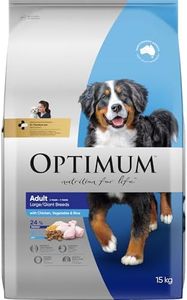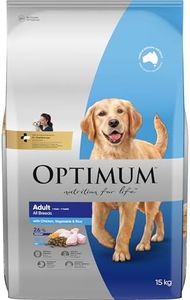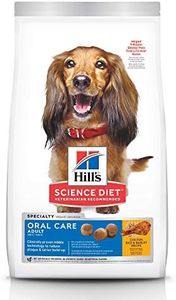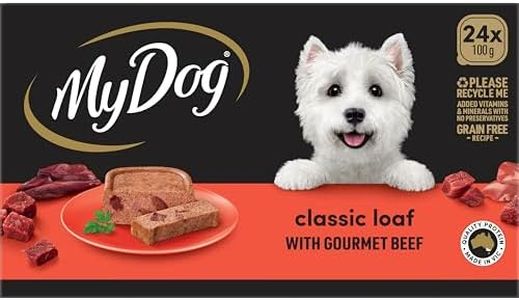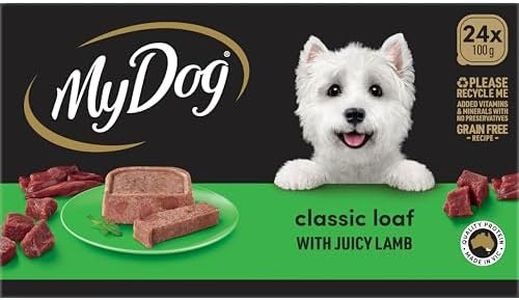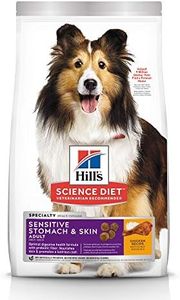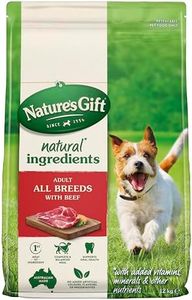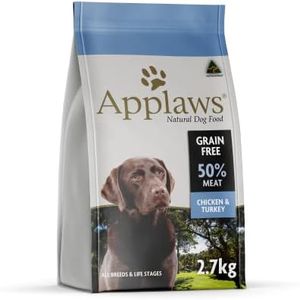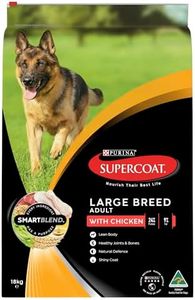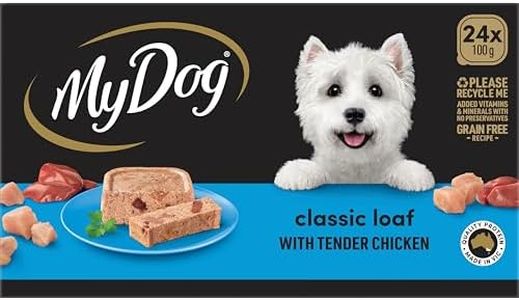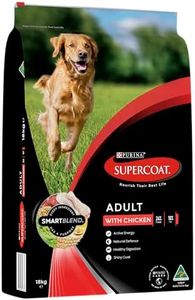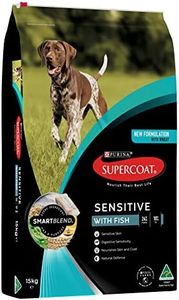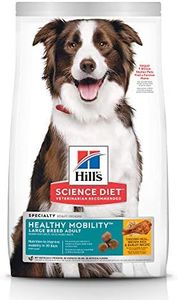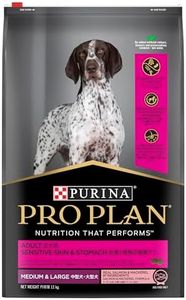We Use CookiesWe use cookies to enhance the security, performance,
functionality and for analytical and promotional activities. By continuing to browse this site you
are agreeing to our privacy policy
10 Best Dog Food For Pitbulls
From leading brands and best sellers available on the web.By clicking on a link to a third party's website, log data is shared with that third party.
Buying Guide for the Best Dog Food For Pitbulls
Choosing the right dog food for your pitbull is important for supporting their health, energy, and muscle development. Pitbulls are active dogs with unique nutritional needs due to their muscular build and playful nature. When looking for the best dog food, pay attention to the ingredient list, the specific nutrient balance, and how the food matches your pitbull’s age and activity level. Evaluating a few key specifications can help you make the right decision for your dog’s long-term well-being.Protein ContentProtein content refers to the percentage of protein in the dog food. Protein is crucial for building and repairing muscles, especially important for a muscular and active breed like pitbulls. You'll usually see ranges between 18% and 30% or higher. Lower protein (under 22%) is generally more suitable for older or less active dogs, while higher protein (22%–30% or more) is better for young, highly active, or athletic pitbulls. Choose the protein level that matches your dog’s lifestyle and life stage, focusing on animal-based proteins for best results.
Fat ContentFat content provides energy and supports a healthy coat and skin. For pitbulls, which have high energy needs, moderate to high fat content (about 12%–20%) is usually suitable. Lower fat is good for less active, older, or overweight dogs, while higher fat is suitable for dogs that are very active or need to put on weight. Always balance fat intake with your pitbull's exercise routine and body condition.
Ingredient QualityIngredient quality refers to what goes into the dog food—whole meats, meat meals, fillers, grains, and artificial additives all play a role. Foods that list real meat (like chicken or beef) as the first ingredient are generally best. Avoid foods with lots of fillers (like corn or soy) or artificial colors and preservatives. If your pitbull has allergies or sensitivities, look for limited ingredient formulas or grain-free options.
Life Stage AppropriatenessDog foods are often labeled for different life stages: puppy, adult, or senior. Each has a different nutrient balance to support dogs in these stages. Puppies need more protein and calories for growth, adults need balanced maintenance food, and seniors benefit from diets that support joint and digestive health. Always pick a food labeled for your dog’s life stage to ensure proper nutrition.
Kibble Size and TextureKibble size and texture refers to the shape and firmness of the dry food pieces, which can influence how easy it is for your pitbull to eat and digest. Large, firm kibble is usually best for larger breeds and can help with dental health by reducing plaque. If your pitbull has dental issues or is a picky eater, you may need to look for smaller or softer kibble or consider mixing in some canned food.
Special Dietary NeedsSpecial dietary needs might include grain-free, hypoallergenic, high-fiber, or joint-supporting formulas. These foods are important if your pitbull has allergies, sensitivities, or specific health concerns, such as joint issues. If your dog has a health condition or special requirement, consult your veterinarian and select a food that matches those needs.
